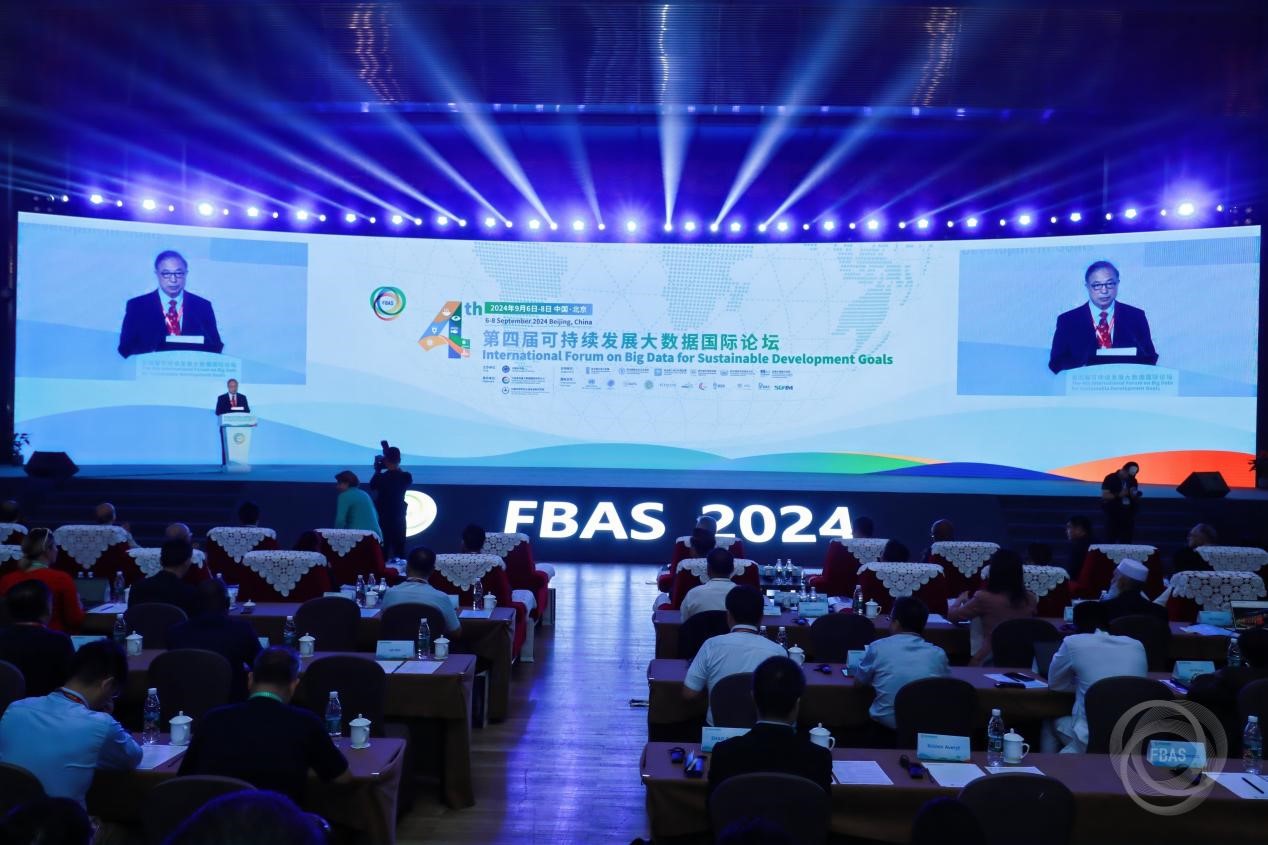 The opening ceremony was attended by leaders from the Chinese Academy of Sciences (CAS), the Ministry of Science and Technology, and the National Natural Science Foundation of China, along with officials from various UN agencies. The event featured speeches from several distinguished figures, including Li Junhua, UN Under-Secretary-General; Wang Xiqin, Vice Chairman of the National Natural Science Foundation of China; Lidia Brito, UNESCO Assistant Director-General for Natural Sciences; Amine Idriss, Director of Infrastructure and Energy for the African Union Development Agency; Dai Gang, Director General of the Department of International Cooperation at the Ministry of Science and Technology; Beate Trankmann, UNDP Resident Representative in China; and Marion Barthélemy, Director of the United Nations Satellite Centre.
The opening ceremony was attended by leaders from the Chinese Academy of Sciences (CAS), the Ministry of Science and Technology, and the National Natural Science Foundation of China, along with officials from various UN agencies. The event featured speeches from several distinguished figures, including Li Junhua, UN Under-Secretary-General; Wang Xiqin, Vice Chairman of the National Natural Science Foundation of China; Lidia Brito, UNESCO Assistant Director-General for Natural Sciences; Amine Idriss, Director of Infrastructure and Energy for the African Union Development Agency; Dai Gang, Director General of the Department of International Cooperation at the Ministry of Science and Technology; Beate Trankmann, UNDP Resident Representative in China; and Marion Barthélemy, Director of the United Nations Satellite Centre.
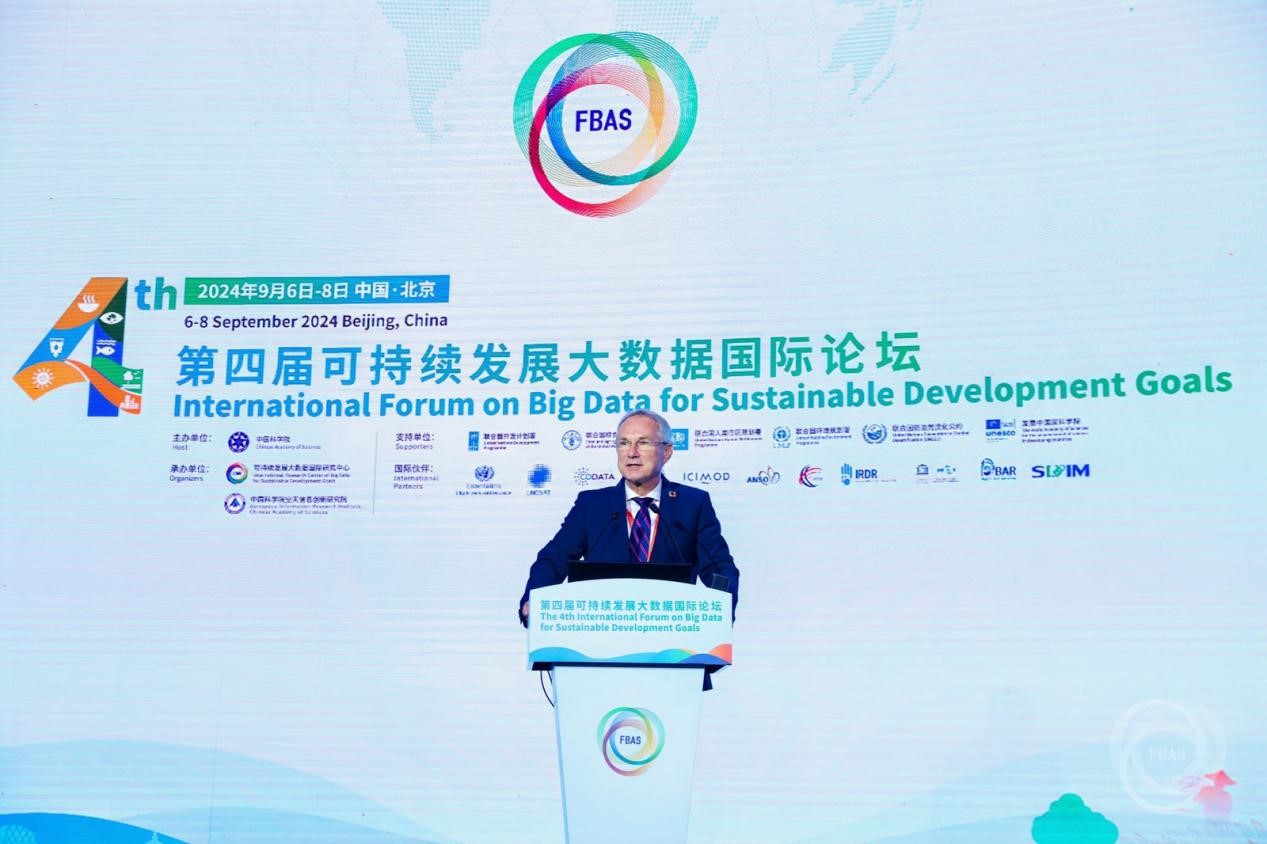
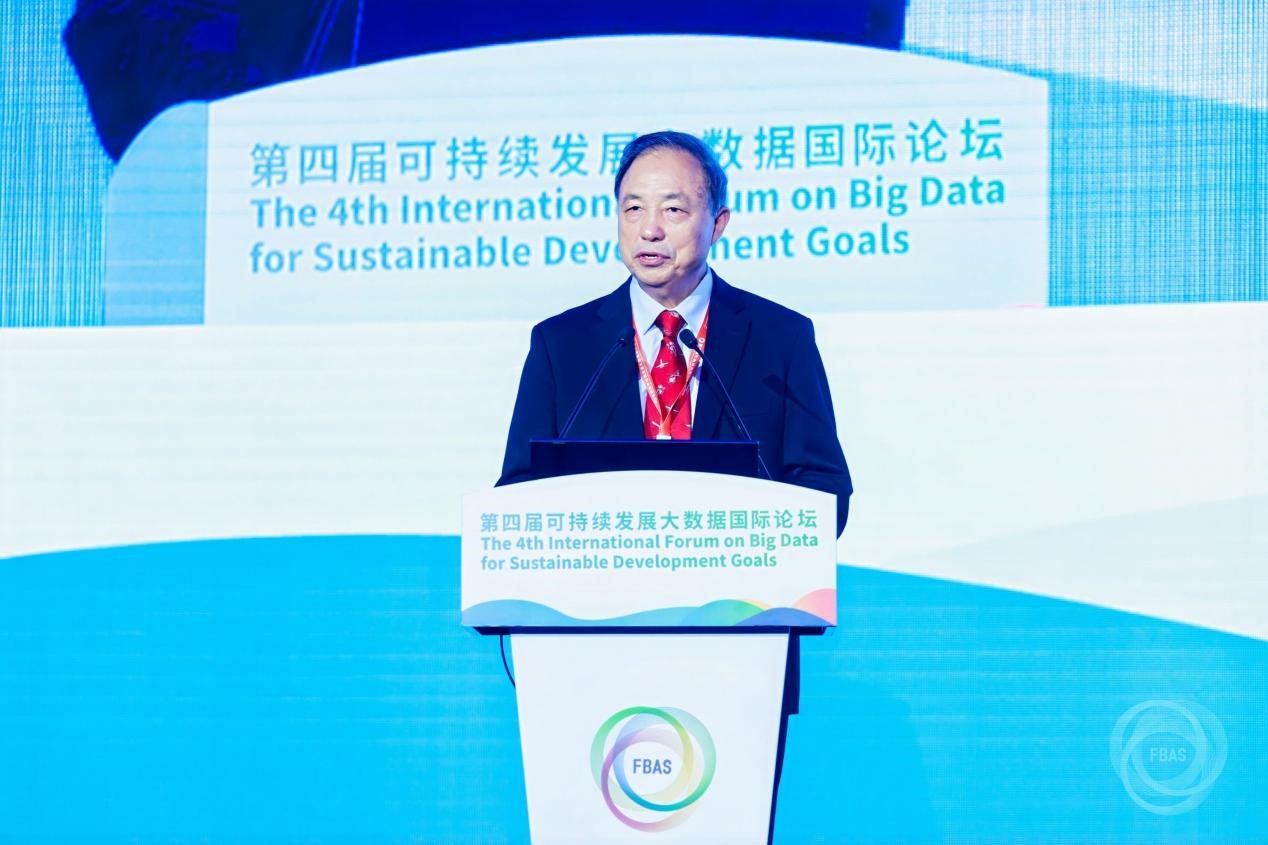
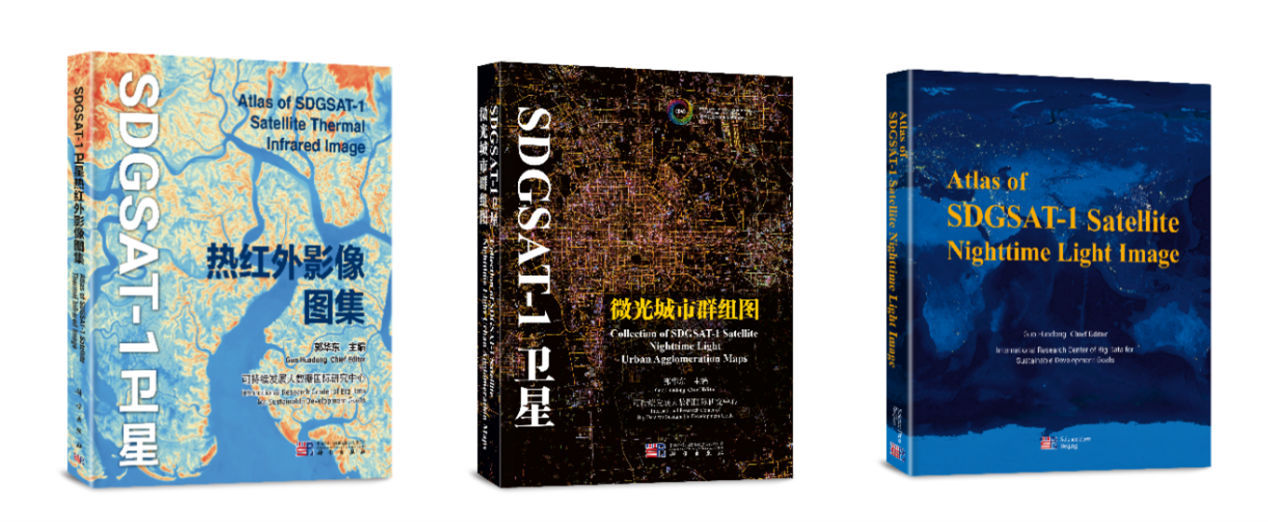
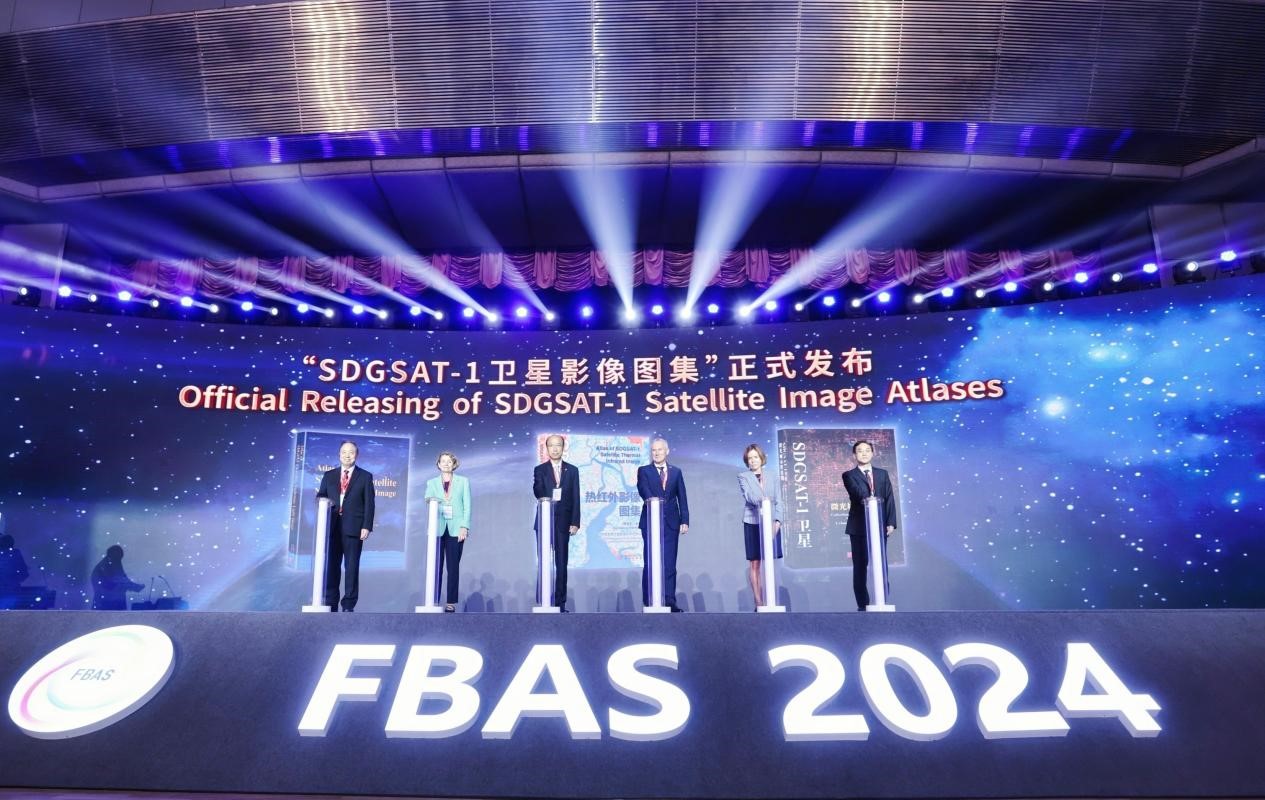 During the forum, the Sustainable Development Satellite Observation Alliance (ASSA), initiated by CBAS in collaboration with seven satellite centers, officially launched the Sustainable Development Satellite Virtual Constellation. The constellation includes SDGSAT-1, Fengyun-3E, HJ-2A, ZY-3-03, HY-1C, and CBERS-04A satellites. This event marks China’s effort to supporting global sustainable development through space technology.
During the forum, the Sustainable Development Satellite Observation Alliance (ASSA), initiated by CBAS in collaboration with seven satellite centers, officially launched the Sustainable Development Satellite Virtual Constellation. The constellation includes SDGSAT-1, Fengyun-3E, HJ-2A, ZY-3-03, HY-1C, and CBERS-04A satellites. This event marks China’s effort to supporting global sustainable development through space technology.
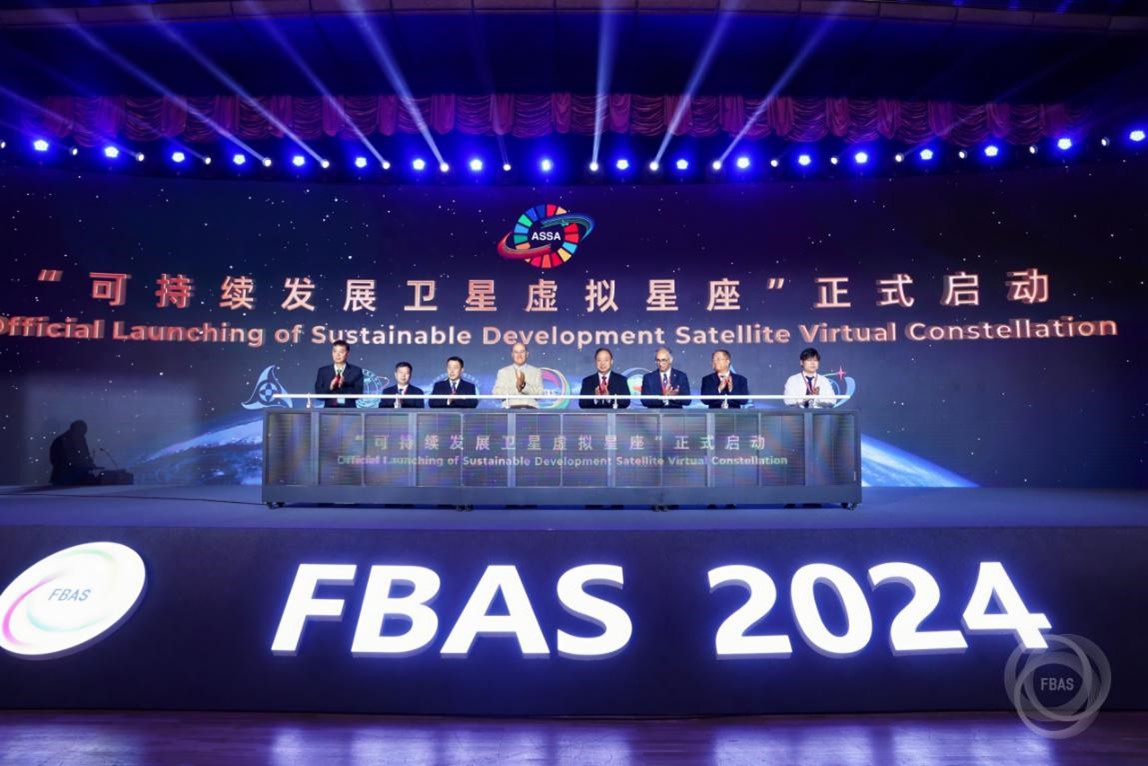 Additionally, CBAS announced the election of four new CBAS Fellows for 2024: Abbas Rajabifard, former Chair of the UN Global Geospatial Information Management Academic Network; Chen Deliang, Academician at the Royal Swedish Academy of Sciences; Simon Redfern, Dean of the College of Science at Nanyang Technological University, Singapore; and Jeffrey Sachs, Chair of the UN Sustainable Development Solutions Network.
Additionally, CBAS announced the election of four new CBAS Fellows for 2024: Abbas Rajabifard, former Chair of the UN Global Geospatial Information Management Academic Network; Chen Deliang, Academician at the Royal Swedish Academy of Sciences; Simon Redfern, Dean of the College of Science at Nanyang Technological University, Singapore; and Jeffrey Sachs, Chair of the UN Sustainable Development Solutions Network.
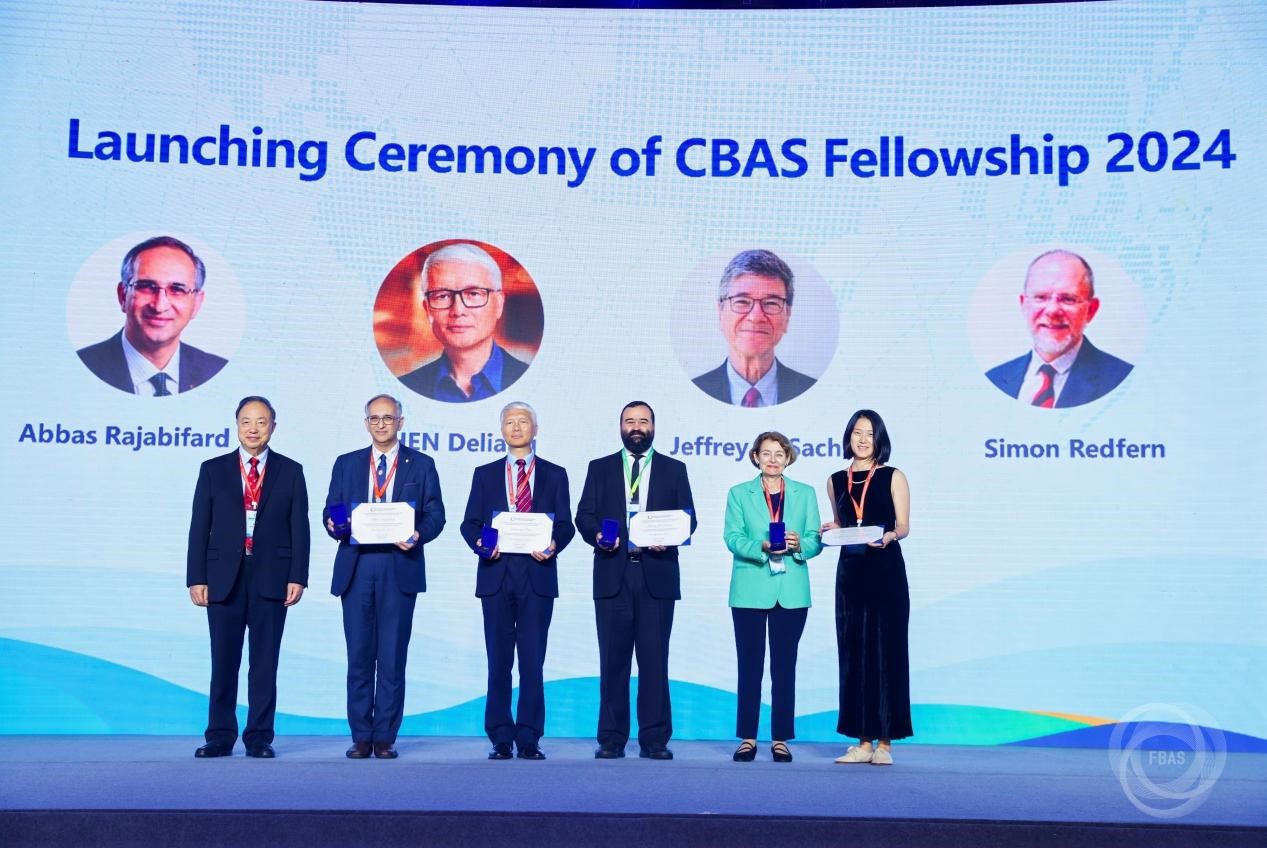 Prof. Guo Huadong presented a series of data products to Sai Navoti, Head of the Small Island Developing States Unit at the UN Department of Economic and Social Affairs (UNDESA). These products, which focus on SDG 11 (Sustainable Cities and Communities), SDG 13 (Climate Action), and SDG 14 (Life Below Water), include in-depth research on marine and land heatwaves, coral bleaching thermal stress, and global ocean heat content. They are intended to provide essential data support and decision-making tools for small island developing states, enhancing their capabilities in risk assessment, climate monitoring, and adaptation.
Prof. Guo Huadong presented a series of data products to Sai Navoti, Head of the Small Island Developing States Unit at the UN Department of Economic and Social Affairs (UNDESA). These products, which focus on SDG 11 (Sustainable Cities and Communities), SDG 13 (Climate Action), and SDG 14 (Life Below Water), include in-depth research on marine and land heatwaves, coral bleaching thermal stress, and global ocean heat content. They are intended to provide essential data support and decision-making tools for small island developing states, enhancing their capabilities in risk assessment, climate monitoring, and adaptation.
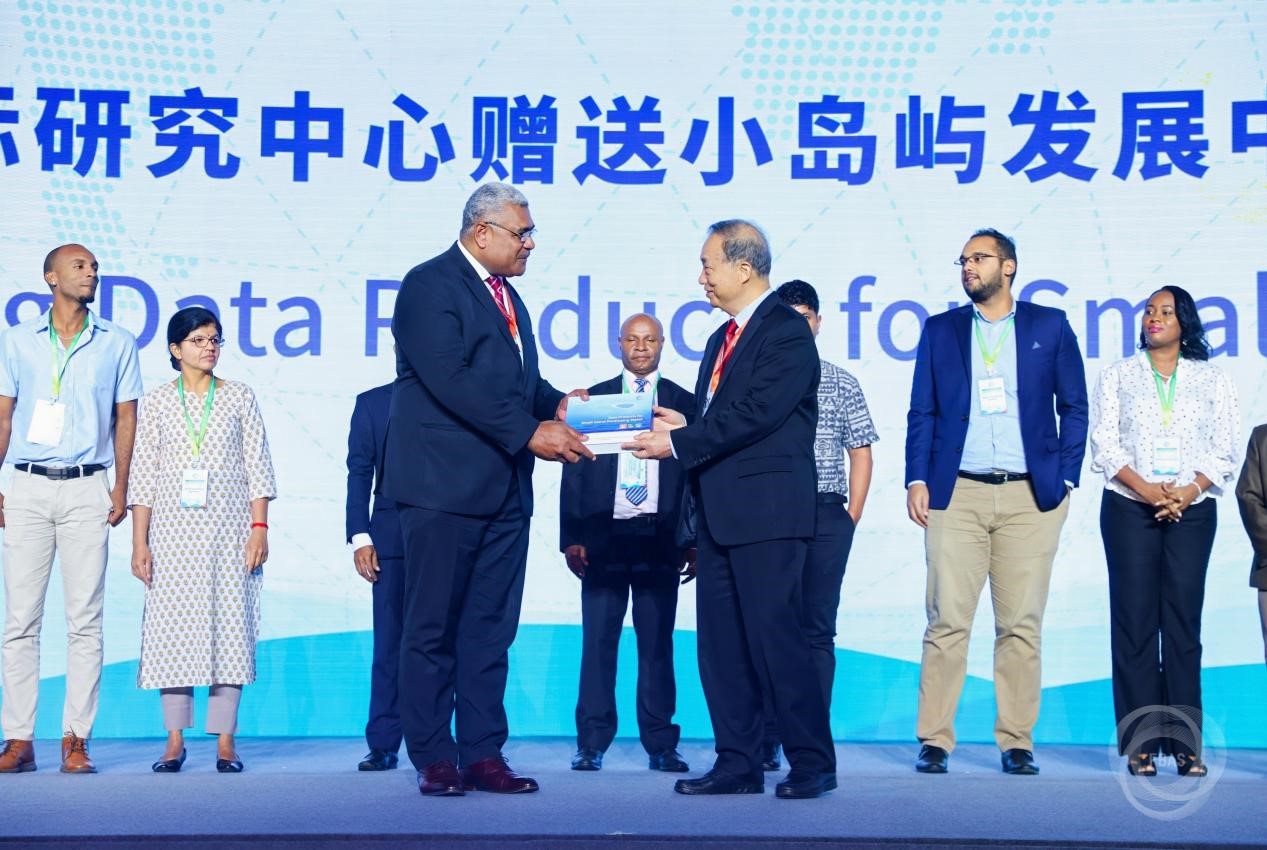
Hosted by CAS and organized by CBAS together with the Aerospace Information Research Institute under CAS, the forum is supported by well-known international organizations and groups, including the United Nations Development Programme (UNDP), the United Nations Environment Programme (UNEP), the United Nations Human Settlements Programme (UN-Habitat), the Food and Agriculture Organization of the United Nations (FAO), the Academy of Sciences for the Developing World (TWAS), and the United Nations Convention to Combat Desertification (UNCCD). Nearly 40 research institutes, including the China Association for International Science and Technology Cooperation, the Institute of Irrigation and Water Problems of Uzbekistan, and the University of Hong Kong, are co-organizers.
The three-day forum is themed “Next 7 Years: Big Data Driving Transformative Actions to Achieve SDGs”. It will feature four special sessions: "Digital Science Driving Sustainable Development," " The 4th Forum on Space Observations for Sustainable Development", "Digital Technologies for Advancing Sustainable Development Goals - Youth Action" and "Poles and high mountains of the Earth: challenges for sustainable development in a fragile environment" along with 39 parallel sessions. Over 700 representatives from nearly 50 countries and 17 international organizations will gather in Beijing to discuss how big data technologies can drive the transformation towards global sustainable development.